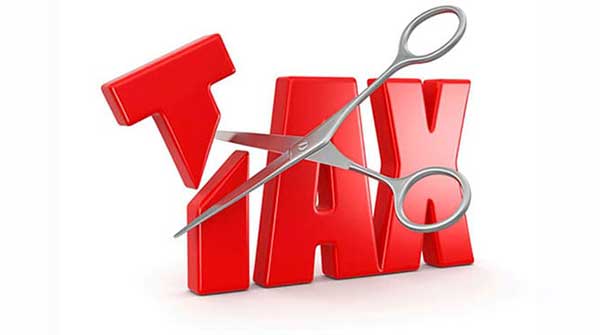Luckily there are ways to trim the fat and balance the books
 Manitoba’s budget is next week, and this is the last chance that Manitobans have to make their voices heard before provincial politicians start dividing up and spending all of their taxpayer dollars.
Manitoba’s budget is next week, and this is the last chance that Manitobans have to make their voices heard before provincial politicians start dividing up and spending all of their taxpayer dollars.
The Stefanson government is confronting many important issues, including economic uncertainty, rising interest rates and job vacancies.
Last month, Manitoba’s inflation rate was 6.9 per cent, one percentage point above the Canadian average. Grocery prices are also up 10.4 per cent this month compared to last year.
The provincial government needs to resist the urge to try and spend its way out of its problems. Instead, Manitoba needs to introduce a budget that puts taxpayers first. That means tax relief and a balanced budget.
 |
| Related Stories |
| Manitoba has a serious worker shortage problem
|
| Is Manitoba’s liquor monopoly on its last dregs?
|
| Canadians getting desperate about higher food prices
|
First off, Manitobans pay some of the highest taxes in the country. Real tax relief would go a long way to attracting job seekers and helping families afford more of what they need.
A family making $75,000 a year in Winnipeg can expect to pay $7,148 in provincial taxes. That is almost $3,000 more than a similar family can expect to pay in Regina or Toronto. It’s over $4,000 more than what that family would pay in Calgary or Vancouver. And, when looking at income taxes alone, that same Winnipeg family pays over double what families pay in several other provinces.
While it is good that the province recently gave some money back to taxpayers through the carbon tax relief fund, a permanent tax cut is needed. Reducing the income tax would help bridge the gap in competitiveness between Manitoba and other provinces while delivering comprehensive relief to those already living in Manitoba.
Secondly, overspending is a real problem, and the government needs to rein it in next week. Balancing the budget and paying down debt is the only way to prepare for whatever the future might hold.
Over the past two years, the government of Manitoba’s revenue has increased by 16 per cent, but spending has risen by 24 per cent. This spending imbalance is not new and has been a problem since long before the pandemic.
Over the last 10 years, the provincial government has balanced the budget only once. During the past decade government’s debt has increased by 79 per cent. An individual Manitoban’s share of the provincial debt is projected to reach $20,600 by the end of the year. That share will keep growing until the government balances the budget.
Growing debt also means growing interest payments. The government has spent $4.9 billion on interest payments in the last five years alone. Last year’s interest payments cost every Manitoban $680. With rising interest rates, this number is only bound to increase further.
The money spent on interest payments doesn’t go to hospitals, schools, or debt repayment. Instead, it gets sent to bankers and bond fund managers on Bay Street.
Luckily there are ways to trim the fat and balance the books. To start, Manitoba should cut up its corporate welfare credit card. It wasn’t too long ago that the province had to write off $200 million in loans after the government made bad deals in the IG Field debacle.
Last year the Manitoba government also spent over $9 billion on personnel services, the largest line item in the budget. Studies show that government employees earn 5.8 per cent more on average than their private sector counterparts. Government employees also retire earlier and have more job security. Reducing compensation costs would promote fairness and save taxpayers money.
Manitoba has a chance in this upcoming budget to provide real relief and prepare the province for an uncertain future. Reducing the income tax helps everyone afford essentials and attracts workers today. Balancing the budget reduces wasted interest costs and helps the province prepare for any upcoming economic storm.
Gage Haubrich is the Prairie Director for the Canadian Taxpayers Federation.
For interview requests, click here.
The opinions expressed by our columnists and contributors are theirs alone and do not inherently or expressly reflect the views of our publication.
© Troy Media
Troy Media is an editorial content provider to media outlets and its own hosted community news outlets across Canada.

